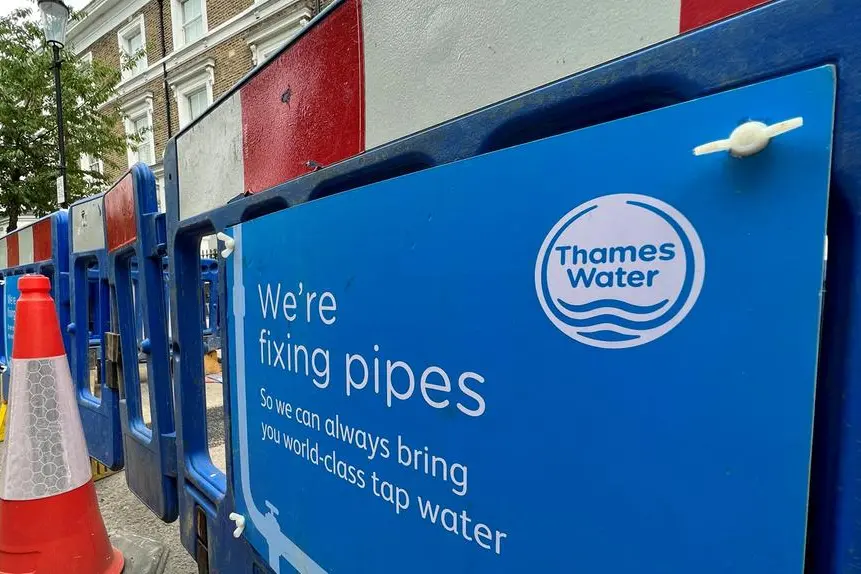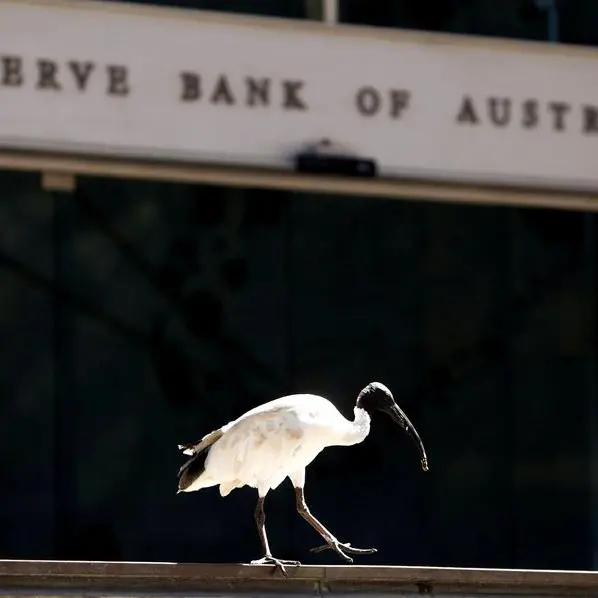PHOTO
LONDON - Thames Water has warned that it expects to run out of cash by the end of December unless it gets approval from the majority of its creditors to borrow more money.
Britain's largest water company needs to raise new equity, likely along with additional restructuring of nearly 16 billion pounds ($21.4 billion) of debt, to lower its leverage and restore its investment-grade credit rating.
Thames Water breached the terms of its licence in July after losing two investment grade ratings from Moody's and S&P.
Moody's downgraded Thames Water rating deeper into junk territory on Wednesday, the second time in two months, after raising doubts about the country's largest water provider securing new equity funds to stay afloat.
Its main goal is now to reduce its leverage to around 65% of its regulated asset base (RAB), currently at 19 billion euros, to recover the credit ratings, people with knowledge of the debt restructuring talks said.
Thames Water said last week that if its creditors do not let it draw on the 380 million pounds of cash it needs in reserves under its financing arrangement, and it cannot access 420 million pounds of undrawn committed facilities, it could run out of money at the end of December.
It has a further 550 million pounds in undrawn reserve liquidity facilities available should it enter a standstill, where secured creditors agree not to demand repayment.
It is also is in talks with a group of creditors on an interim liquidity facility of up to 1 billion pounds, with a deal possible within weeks, two sources with knowledge of the discussions told Reuters.
Here are some of the potential outcomes:
NEW EQUITY
Thames Water could succeed in raising funds. It has said it is looking to raise up to 3.25 billion pounds in new equity.
Depending on the amount raised, the funds could be enough to avoid a debt restructuring where creditors would likely have to take losses. It could bring in strategic as well as financial investors.
It is very probable that any potential investors in the equity ask for a debt restructuring as a condition to inject money into the company.
Thames Water is working with Rothschild and Linklaters and has already sounded out potential investors, people familiar with the matter said. It has said it will launch a formal equity solicitation process in the coming weeks.
Thames Water aims to get indicative offers for fresh equity in early November, a source with knowledge of the talks said.
A spokesperson for Thames Water referred to the company's previous public statements.
RESTRUCTURING
Thames Water's creditors are split into three groups, which have been given access to its financial data and begun their own business plans, people familiar with the matter said.
A restructuring could range from a simple debt refinancing with new equity from a third party to creditors taking control.
It could involve provision of new funding by the current creditors, which are also looking for an equity investor to inject capital, people with knowledge of the talks said.
A restructuring could also extend the maturities of existing debts, the people said. Thames Water benefits from relatively cheap financing thanks to years of low interest rates.
Court dates in November and December have already been booked for a potential deal, the people said.
SPECIAL ADMINISTRATION
Without a rescue plan, Thames Water could be placed by the government into a special administration regime (SAR), where the aim is to keep its operations running.
In a SAR, creditors are unlikely to recover as much of their investment as they would in other restructuring processes and one of the sources said the government wants Thames Water to work with Ofwat to find a solution that avoids this scenario.
Under a law introduced in February, the High Court can appoint a qualified insolvency practitioner as a special administrator to oversee a water company's affairs.
A SAR aims to facilitate the transfer of the company or its assets to another entity capable of efficiently conducting the business. The special administrator is also mandated to achieve the best outcome for the company's creditors as a whole.
Within three months of appointment, the special administrator must submit a report to the High Court outlining the proposals for achieving its objectives.
If a company is placed under a SAR, a buyer is sought to assume control of the business. If that is not possible, it may end up with some of its assets being transferred to another company or even liquidated and dissolved. ($1 = 0.7477 pounds)
(Reporting by Anousha Sakoui, Andres Gonzalez, Paul Sandle and Sarah Young; Editing by Alexander Smith)





















